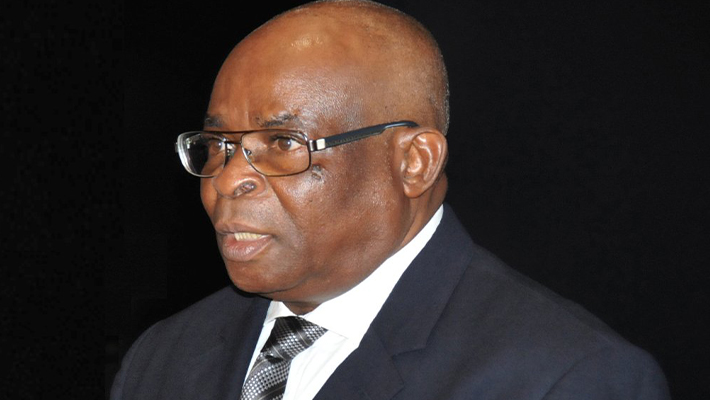
The Court of Appeal will Tuesday hear a suit filed by former Chief Justice of Nigeria (CJN), Justice Walter Onnoghen, challenging the Code of Conduct Tribunal (CCT) order that removed him from office in 2019.
Appeal Court to hear ex-CJN Onnoghen’s suit challenging his removal from office on Tuesday
The Code of Conduct Tribunal had in 2019 convicted Mr Onnoghen in all the six-count charges of breach of the Code of Conduct for Public Officers.
Mr Onnoghen is praying the court to void and set aside the CCT judgement delivered against him on April 18, 2019, on various grounds. The suit was filed at the Court of Appeal in 2019.
In his appeal marked CA/ABJ/375 & 376 & 377/2019, Mr Onnoghen, through his lead counsel, Adegboyega Awomolo (SAN), is asking the appellate court to quash his conviction primarily on grounds of want of jurisdiction, bias, and absence of a fair hearing.
Mr Onnoghen is the appellant, and the Federal Republic of Nigeria is the sole respondent.
A notice for hearing of the appeal just sighted by a correspondent is entitled, “CA/ABJ/375 & 376 & 377/2019 BTW: Justice Onnoghen and FRN.”
The Code of Conduct Tribunal had in 2019 convicted Mr Onnoghen in all the six-count charges of breach of the Code of Conduct for Public Officers brought against him by the federal government while in office as the CJN.
In the lead judgement delivered by the chairman of the CCT, Danladi Umar, he had ordered the immediate removal of Mr Onnoghen from office as the CJN.
The tribunal had also stripped him of all offices earlier occupied, among which were the chairmanship of the National Judicial Council (NJC) and the chairmanship of the Federal Judicial Service Commission.
The tribunal also ordered the forfeiture of his five bank accounts and the money in the accounts that Mr Onnoghen did not declare in his asset declaration form submitted to the Code of Conduct Bureau, CCB, an agency of the federal government.
Although Mr Onnoghen had been on suspension since January 25, 2019, and resigned on April 4, the tribunal nonetheless ordered his removal from office as the Chief Justice of Nigeria and the chairman of the National Judicial Council and the Federal Judicial Service Commission.
However, dissatisfied with the CCT decision, Mr Onnoghen in 2019 approached the Court of Appeal with 16 grounds on why his conviction by the tribunal should be quashed.
Among others, he maintained that the Danladi Umar-led CCT panel erred in law and occasioned a miscarriage of justice against him when it failed to decline jurisdiction to entertain the six-count against him.
He contended that the CCT chairman should have recused himself from presiding over his trial.
In his seven-point relief, Mr Onnoghen applied for an order setting aside his conviction, quashing the order for the forfeiture of his assets, and discharging and acquitting him of all the charges against him.
Listing some of the particulars of error in the CCT’s verdict, Mr Onnoghen argued that he was a judicial officer at the time the charges were filed against him on January 11, 2019, and, as such, cannot be subjected to the jurisdiction of the lower tribunal.
“On the authority of Nganiiwa v. FRN (2018) 4 NWLR (Pt. 1609) 30: at 340. 341, only the National Judicial Council (NJC) has the power to discipline the appellant for misconduct and not the lower tribunal.
“The lower tribunal, in the case of FRN v. Sylvester Nwali Nguta, in charge No. CCT/ABJ/01/2017, delivered on January 9, 2018, affirmed the position of the Court in FRN Nganjiwa v. FRN.
The court further dismissed the charges and acquitted and discharged Justice Ngwuta, a judicial officer subject only to the discipline of the National Judicial Council.
“The lower tribunal has no jurisdiction over serving judicial officers such as the appellant, save the National Judicial Council.